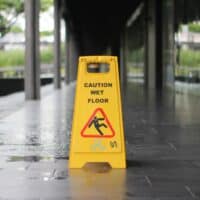Liability in Premises Law

When you get hurt, you should only have to focus on rest and recuperation and not be worried about your medical bills being covered. However, injuries sustained on someone else’s property can be complicated, with multiple people denying responsibility or blaming others. Whether you were injured in a residential rental property or when shopping at a public mall – someone is liable if their negligence causes you to suffer.
This article will discuss when and how property owners might be responsible for accident injuries that take place on their site.
Injury Liability – Tenants or Property Owners?
Victims may be confused about who is responsible for an injury on rented property. Should the owner of the property be responsible for every accident that happens? Or should the tenant who resides or conducts business at the location accept the blame? Here is the basic information you need.
Property owners are generally liable when an injury occurs due to maintenance or structural negligence in a “common” area of the property.
● For commercial properties like shopping centers, common areas may include walkways and bathrooms that are outside of stores.
● Common areas at residential properties such as apartment buildings may include stairwells, lobbies, and parking lots.
The tenants of both locations have control over what happens inside their boundaries – the store and the housing unit – but do not have the right or responsibility to conduct maintenance or change anything outside of those areas. However, they could be responsible still.
The Situation is Often Unclear
Depending on the rental agreements, these specific scenarios can differ.
For example, it is not uncommon for building owners to maintain some level of control over the electrical systems of each unit, as they are interconnected. If the owner does not conduct regular maintenance checks and electrical upgrades and someone is injured as a result, the property owner can be found liable.
Still, even this one example has many more nuances. Imagine that the tenant directly causes damage to an electrical system and doesn’t report it to the owner for repairs. If this problem is left unaddressed, injuries that are caused may not be blamed on the owner, at least entirely.
Conversely, if the tenant informs the owner of any maintenance issues and the owner fails to act in a timely manner, the owner can be found liable.
Establishing Fault in a Premises Liability Case
Although property owners ultimately own the building or premises, the tenant is not always off the hook when it comes to negligence.
When assessing the complexities of these cases, you should never do it alone. Contacting a personal injury attorney as soon as reasonably possible ensures that someone is fighting for you, gathering evidence, and building a solid case from the beginning.
Without proper documentation and evidence gathering at the time, property owners or tenants in charge could change the accident scene (by fixing the floor or replacing a light fixture, for example) before an inspector arrives. They can then attempt to deny the event occurred – or claim that the conditions at the time were not as dangerous as claimed by the injured party. An experienced personal injury attorney can help you do the necessary investigation to support your case and prove liability.
Don’t let someone deny you compensation for a serious and painful injury.
If you were injured on someone else’s property, you should know your rights and know how to win compensation to aid you in your recovery. At Hale Law, we have the experienced professional assistance you need to successfully recover the money you deserve from negligent property owners and tenants. Call Hale Law today to learn more about the merits of your situation. Remember, we don’t collect any payment unless you win.
